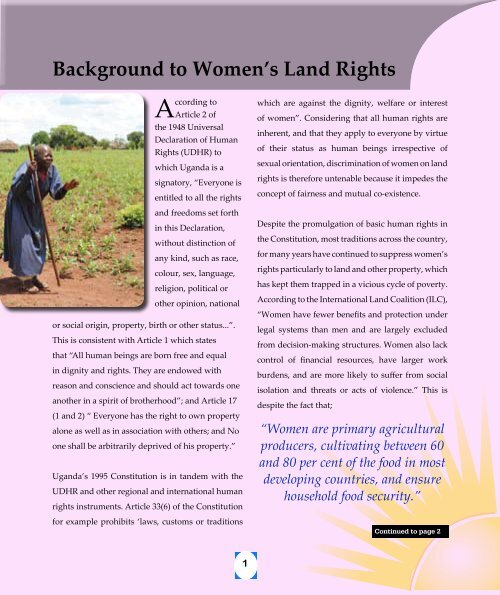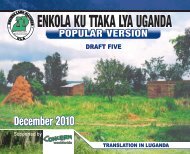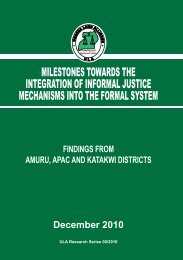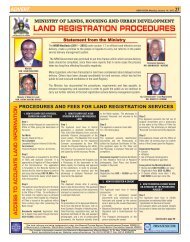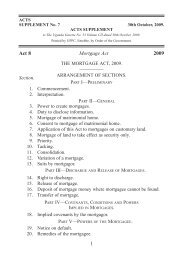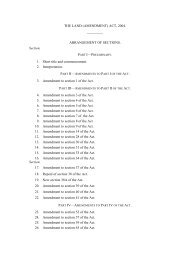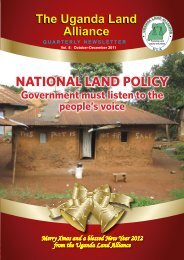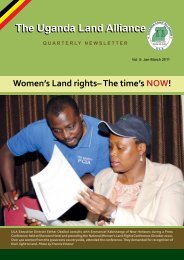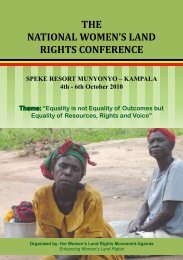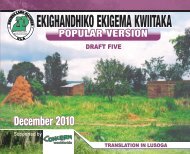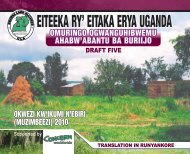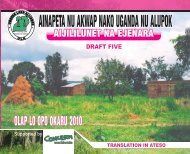A Woman & her Land - Uganda Land Alliance
A Woman & her Land - Uganda Land Alliance
A Woman & her Land - Uganda Land Alliance
- No tags were found...
Create successful ePaper yourself
Turn your PDF publications into a flip-book with our unique Google optimized e-Paper software.
Background to Women’s <strong>Land</strong> RightsAccording toArticle 2 ofthe 1948 UniversalDeclaration of HumanRights (UDHR) towhich <strong>Uganda</strong> is asignatory, “Everyone isentitled to all the rightsand freedoms set forthin this Declaration,without distinction ofany kind, such as race,colour, sex, language,religion, political orot<strong>her</strong> opinion, nationalor social origin, property, birth or ot<strong>her</strong> status...”.This is consistent with Article 1 which statesthat “All human beings are born free and equalin dignity and rights. They are endowed withreason and conscience and should act towards oneanot<strong>her</strong> in a spirit of brot<strong>her</strong>hood”; and Article 17(1 and 2) “ Everyone has the right to own propertyalone as well as in association with ot<strong>her</strong>s; and Noone shall be arbitrarily deprived of his property.”<strong>Uganda</strong>’s 1995 Constitution is in tandem with theUDHR and ot<strong>her</strong> regional and international humanrights instruments. Article 33(6) of the Constitutionfor example prohibits ‘laws, customs or traditionswhich are against the dignity, welfare or interestof women”. Considering that all human rights arein<strong>her</strong>ent, and that they apply to everyone by virtueof their status as human beings irrespective ofsexual orientation, discrimination of women on landrights is t<strong>her</strong>efore untenable because it impedes theconcept of fairness and mutual co-existence.Despite the promulgation of basic human rights inthe Constitution, most traditions across the country,for many years have continued to suppress women’srights particularly to land and ot<strong>her</strong> property, whichhas kept them trapped in a vicious cycle of poverty.According to the International <strong>Land</strong> Coalition (ILC),“Women have fewer benefits and protection underlegal systems than men and are largely excludedfrom decision-making structures. Women also lackcontrol of financial resources, have larger workburdens, and are more likely to suffer from socialisolation and threats or acts of violence.” This isdespite the fact that;“Women are primary agriculturalproducers, cultivating between 60and 80 per cent of the food in mostdeveloping countries, and ensurehousehold food security.”Continued to page 21


